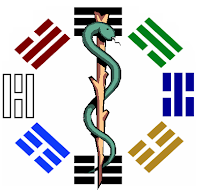What is Medical Acupuncture?
Acupuncture is a method of therapy intended to promote natural body healing, improve and restore bodily functions and relieve or reduce pain. Medical Acupuncture is the term used to describe acupuncture performed by a physician licensed in western medicine and also trained in acupuncture as a specialty. This will allow your physician to use either or both approaches to treat your illness as appropriate. The physician in this facility is a diplomate of the American Academy of pain management as well as board certified in Medical Acupuncture.
How is it Done?
Acupuncture is accomplished through the insertion of special very fine needles through the skin at specific points on the body known as acupuncture points. Heat or electrical stimulation may then be applied to the needles. Needles are sterile and disposable.
Does it Hurt?
Acupuncture needles are very thin and solid, they are mostly made of stainless steel and unlike hypodermic needles are not hollowed and have no cutting edge. Accordingly, most people feel no pain, some experience minimum discomfort as needles are inserted. Once the needles are in place no pain or discomfort is felt.
How Does Acupuncture Work?
Scientific studies have shown that the insertion of needles at the specified acupuncture points stimulates the nervous system to release certain natural chemicals at different tissue levels. Endorphins, normally released by the body to combat pain, are some of these chemicals. This will modify the body's reaction to pain and stimulate the release of other chemicals to influence the healing process and the regulation of different bodily functions. Acupuncture was found to release chemicals responsible for stimulating the “immune system”. This means that the body becomes more able to use its own natural capabilities to promote physical and emotional well-being.
What Are the Side Effects?
Usually none, occasionally your original symptoms may worsen for a few hours up to a day or two, or general short-lived changes in appetite, sleep, bowel or urination patterns may be occasionally triggered. Deep relaxation or occasional mild euphoria may follow treatment, this should cause no concern. It simply indicates that acupuncture is starting to work.
What Can Acupuncture Help?
The World Health Organization recognizes its use in the treatment of a wide range of medical problems that include:
- Digestive disorders: gastritis, hyperacidity, spastic colon, constipation and diarrhea
- Urinary problems including chronic cystitis
- Menstrual and Reproductive problems including infertility and PMS
- Neurological and muscular problems including headaches, facial tics, neck and back pain, tennis elbow, shoulder pain, arthritis, sciatica and tendonitis
- Respiratory disorders including asthma, recurrent bronchitis, sore throat and sinusitis
- Addiction to alcohol, cigarettes and other drugs
- Insomnia
Other conditions that seem to respond well to acupuncture are:
- Fibromyalgia
- Chronic fatigue syndrome
- Attention Deficit Disorder (ADD) here acupuncture without needles could be used
- Hyperactivity and Dyslexia
- Physical problems related to stress, and emotional disorders
- Persistent post operative pain and fatigue
- Trigger points, carpal tunnel syndrome
- Psoriasis, eczema, acne and other skin disorders
- Treatment of painful scars
- Fibromyositis
How Many Treatments Will It Require?
This will vary with each individual and the nature and severity of the condition being treated. In acute problems a few sessions will be sufficient. In chronic and more complicated cases one to two treatments per week for a few weeks will be needed. Treatment will usually last between 15 and 25 minutes with relief usually obtained within hours to a few days.
Do Results Require My Belief In Acupuncture?No, Acupuncture is used with success on animals. These animals do not understand or believe in this process. The same applies to children, they do respond well while they are having no opinion about the treatment. While a positive attitude can enhance the effects of any kind of treatment traditional or complementary, a negative attitude will not block the results of acupuncture.
Could I Mix Acupuncture with Western Medicine?
Yes, actually both modalities of treatment will complement each other. While medications work on the physical level, Acupuncture influences the energetic level.
Is Acupuncture Covered by Health Insurance?
Many insurance companies now cover acupuncture treatment for certain medical problems. Please check with your insurance company about your eligibility for such treatment.
Are there any scientific studies that back up acupuncture efficacy?
Yes, there are many. Just click this link to medicalacupuncture.com and search for the subject you want.
